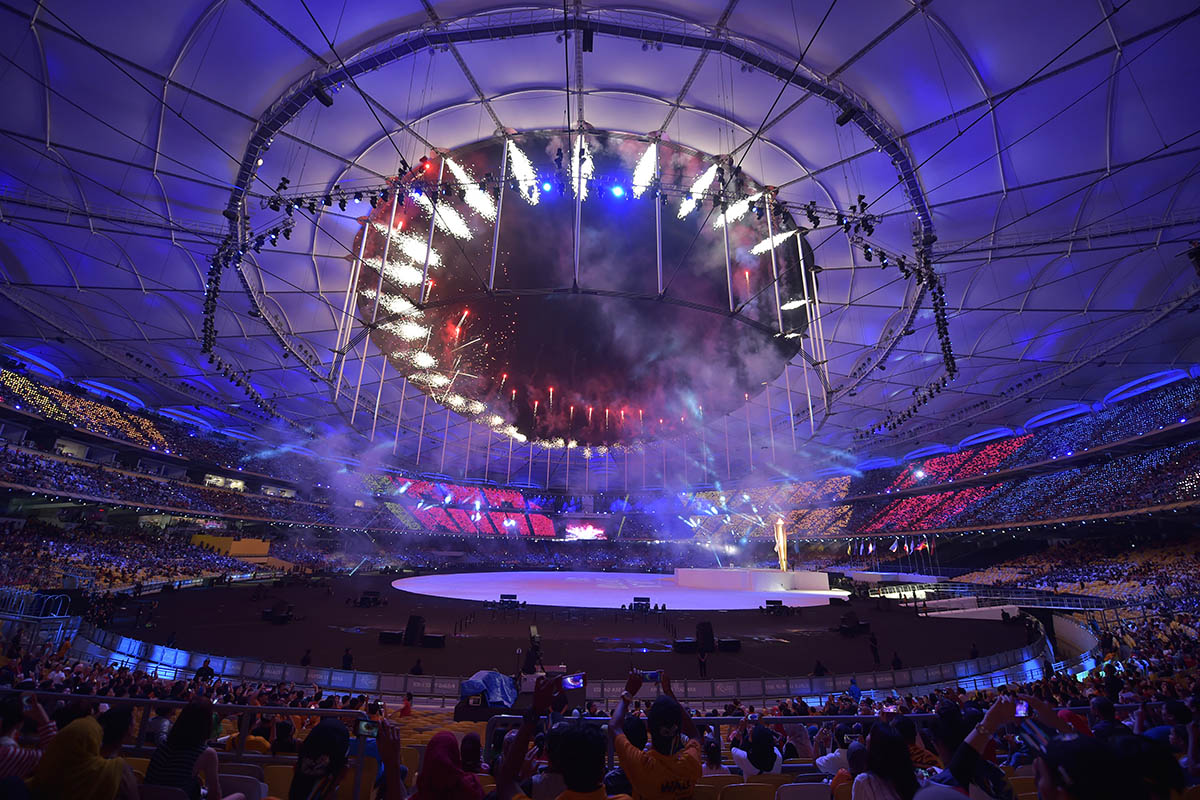The 29th Southeast Asian Games (SEA Games) or Kuala Lumpur 2017 kicks-off today with a glittering and spectacular opening ceremony at the Bukit Jalil National Stadium, Malaysia. Hosting major sporting events like the SEA Games, World Cup and Olympics has its own advantages and disadvantages to a host country and in Malaysia’s case, it is likely to bring about not only economic benefits but positive limelight to the country.
Some 85,000 thousand spectators filled up the newly-refurbished National Stadium in Bukit Jalil which will be the point of attention in the next 12 days of competition, where 38 sports and 404 events will take place.
The athletes parade was among the highlights of the opening ceremony with Brunei leading the respective SEA Games contingents into the stadium, followed by Cambodia, Indonesia, Laos, Myanmar, Philippines, Singapore, Thailand and Timor Leste.
The Malaysian contingent, parading close to 900 athletes and led by world champion Azizulhasni Awang, Cheong Jun Hoong and Mohd Al-Jufri Jameri, received a thunderous applause from spectators as they entered into the stadium.
The SEA Games, which involves the participation of close to 7,000 athletes and officials, ends on August 30.
SEA Games or previously known as the South East Asian Peninsula Games was first held in Bangkok, Thailand in December 1959. This year, Malaysia plays host for the biggest multi-sporting event in Southeast Asia, after 16 years. The biennial games will be held from August 19-30. The last time Malaysia played host to the SEA Games was back in 2001 when the country emerged as overall champions with 111 gold medals, followed by Thailand (103) and Indonesia (72). Malaysia first hosted the SEA Games back in 1965. The country had also played host in 1971, 1977, 1989 and 2001. For the 2017 SEA Games and ASEAN Para Games, the Malaysian government allocated a total of RM450 million (approx. USD$104.77M) from its 2016 Federal Government Budget.
The theme for Kuala Lumpur 2017 is “Rising Together”, which signifies the coming of age for Southeast Asia as an economic community. The region has come a long way in making its mark on the global stage and many quarters share the view that the time is now, for the nations to come together to write a next chapter in its collective journey of peace, progress and prosperity.
Kuala Lumpur 2017 will be an important milestone in the ASEAN region as it will be the first SEA Games and ASEAN Para Games to be held following the formation of the ASEAN Economic Community in 2015. It will further prove that sports, as a unifying factor, will not only bring together all the citizens of ASEAN to celebrate their commitments and achievements towards sportsmanship at the SEA Games but will act as a stimulant to uplift and inspire the entire region.
From an economic standpoint, the SEA Games will see a massive inflow of tourists into the Malaysian capital resulting in increased spending. Food and beverage, hospitality and the tourism sector should see an increase in activity during the sporting event. Following the completion of the Mass Rapid Transit system in Kuala Lumpur, with the ease of movement, the transportation sector should see added passenger utilisation rates. Sponsorships and advertising at Kuala Lumpur 2017 would also see a spike in sports marketing as advertisers seek to capitalise on the media coverage of the SEA Games in their pursuit of capturing consumers and brand building.
Following Kuala Lumpur 2017, the 2019 SEA Games will be held in Philippines followed by Vietnam in 2021. Cambodia will then play host for the first time in 2023.
